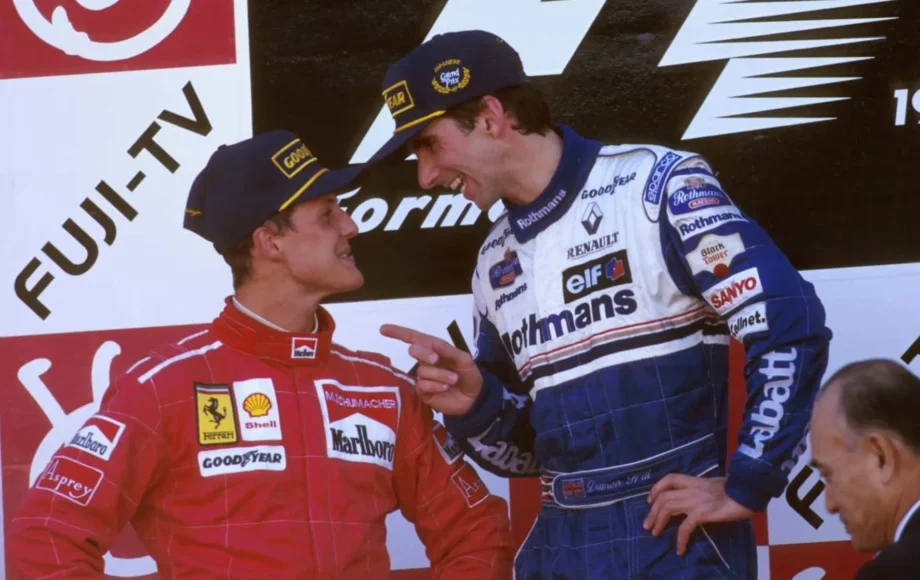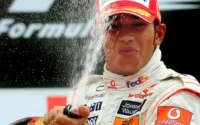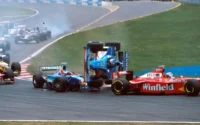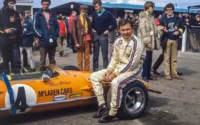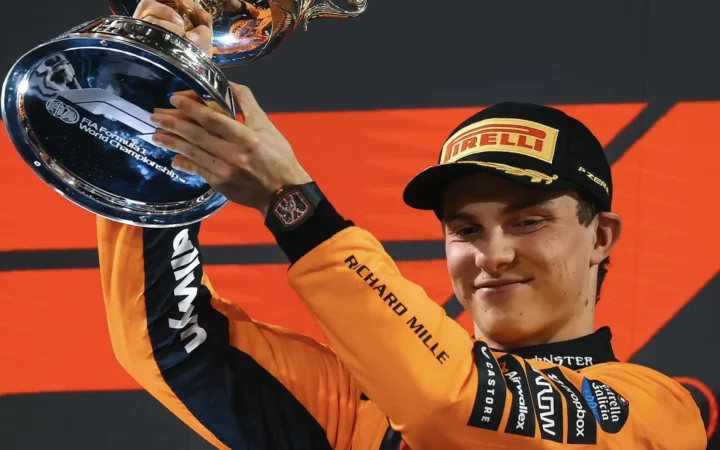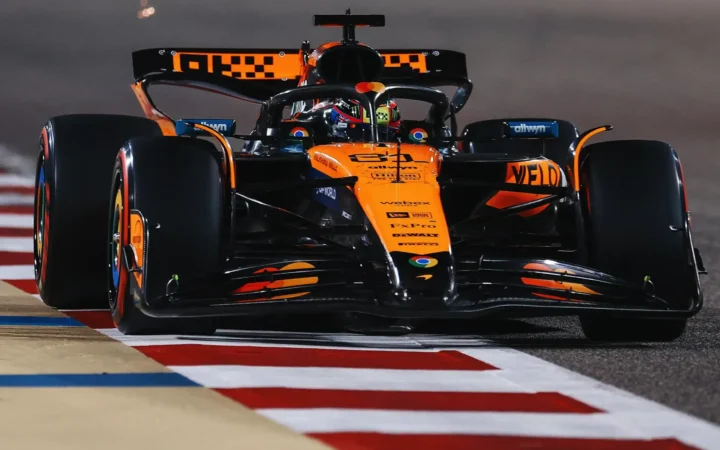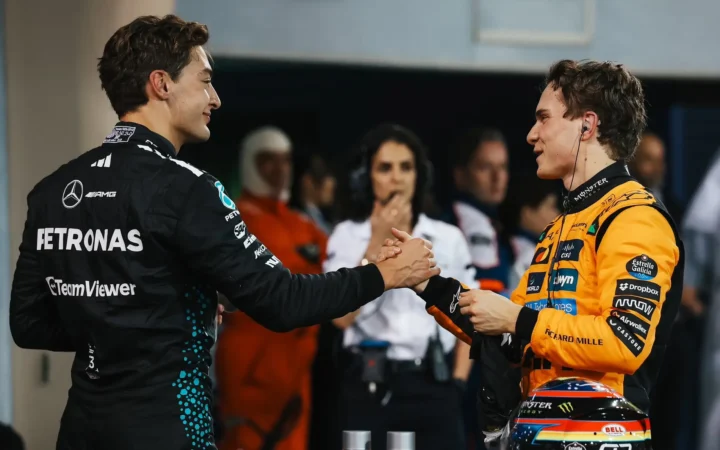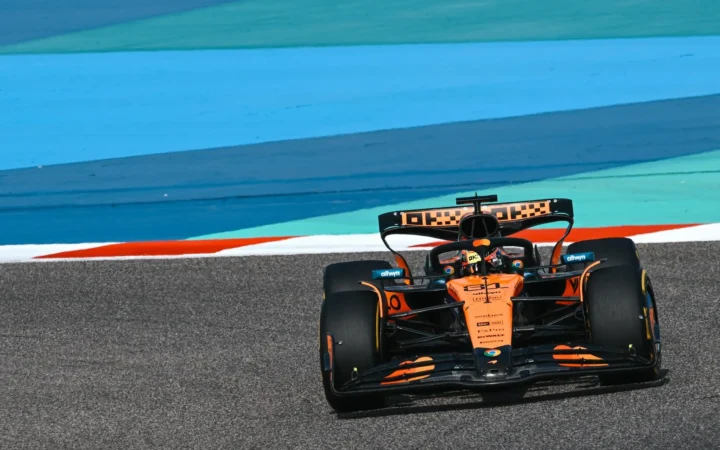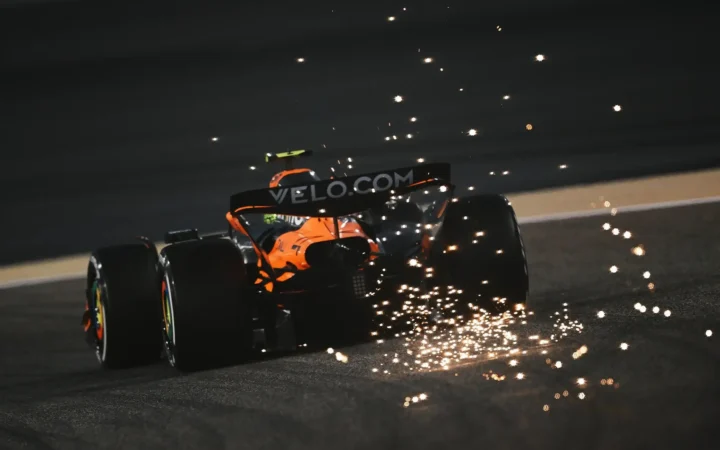What happened on this day, October 13 in Formula 1 history? Find out interesting facts and stories about Formula 1 on this day.
1899
Italian Piero Dusio had the briefest of F1 careers, failing to qualify for the one race he entered, the 1952 Italian Grand Prix, although he was 52 at the time. His previous sporting life had been more colourful and included a spell as a footballer with Juventus as well as pre-war racing, the highlights being a sixth-place finish at the 1936 Italian Grand Prix and a number of entries in the Mille Miglia. He was behind the development of various Italian racing cars, and when that enterprise failed, he moved to carry on similar work in Argentina.
1943
Born on this day, Peter Sauber is best known as the founder of the Sauber team. His career began in motorsports during the 1970s when he started building small, two-seater sports cars. Sauber’s passion for motorsport led him to establish his own racing team, entering various championships. By the early 1980s, his team gained success in sports car racing, particularly with Mercedes-Benz. This partnership eventually paved the way for Sauber’s entry into Formula 1 in 1993. Over the years, Sauber partnered with various manufacturers, including Mercedes, Ferrari, and BMW, with BMW eventually acquiring the team in 2006. After BMW’s exit from Formula 1 in 2009, Sauber regained control of the team. Though Peter Sauber retired in 2016, his team lives on now branded as the Kick Sauber team, and Audi from the 2026 F1 World Championship.
1949
Patrick Neve had an undistinguished 14-race F1 career which was mainly built on one season as a pay driver with Williams in 1977, where his best result was seventh at the 1977 Italian Grand Prix. In 1978, he raised his own funded F2 team, but it collapsed before the year was out. His final outing came at the 1978 Belgian Grand Prix, where his privately-entered March failed to qualify.
1996
Damon Hill clinched the 1996 Drivers’ Championship title with victory at the 1996 Japanese Grand Prix, becoming the sport’s first second-generation winner following his father Graham Hill‘s two championships in the 1960s. Hill capitalised on a poor start from pole by Williams teammate Jacques Villeneuve and knew the title was his when Villeneuve lost a wheel on the 37th lap. It was a mixed triumph for Hill—it was his last race for Williams, who had already signed Heinz-Harald Frentzen to replace him in 1997, and it was far from certain he would continue in the sport. Although he had signed for Arrows, the team had no car and no certainty one would be ready for 1997. He admitted this was his last chance for a championship as the next generation were snapping at his heels. “To be honest, it had to be this year for me and I’m really, really delighted,” he said. “I knew everyone in the team wanted the win, and I wanted to give it to them. I am sorry to be going, but what a way to leave.”
Michael Schumacher finished second for Ferrari, helping the Italian team overtake Benetton to secure second place in the Constructors’ Championship. Mika Hakkinen claimed third place for McLaren.
This race marked the final Formula 1 appearance for Martin Brundle, who had competed since 1984 and secured nine podium finishes since 1992. It was also the last race for Pedro Lamy and Giovanni Lavaggi and the Footwork and Ligier teams.
2002
“If proof were needed that F1 is becoming a television turn-off, yesterday’s season-ending Japanese Grand Prix was the perfect example—a Michael Schumacher masterclass and Ferrari one-two with dramatic content of zero,” wrote the Daily Mail. “For a definitive definition of desperation, look no further than FIA president Max Mosley and millionaire F1 string-puller Bernie Ecclestone, who are all too aware that they are presiding over the world’s most boring series on four wheels.” With TV audiences in freefall, Mosley was only too aware of the crisis. “We have a problem in that people have stopped watching F1 on television,” he admitted. “According to Bernie, it has started to be quite serious, and he is getting complaints from TV companies.” The race marked the end of a tedious season in which Ferrari won 15 of the 17 Grand Prix (Schumacher 11, Rubens Barrichello four), including nine one-twos, and finished with the same number of constructors’ points as all the other teams combined. Schumacher also created another record in that he appeared on the podium at every grand prix. Asked for a solution, Mosley shrugged and suggested driver-swapping, so Schumacher might be put in a Minardi, but admitted: “That’s my favourite, but I think teams are unlikely to accept.”
2013
Red Bull driver Sebastian Vettel won the 2013 Japanese Grand Prix, extending his lead in the championship. Although Romain Grosjean (Lotus F1) had a strong start and led much of the race, Red Bull’s strategy allowed Mark Webber to finish second, while Vettel secured the win with a late pass. Grosjean completed the podium in third. This race brought Vettel closer to his fourth consecutive world title. It was Red Bull’s 14th one-two finish in Formula One.
2019
Mercedes driver Valtteri Bottas claimed victory after a strong start from third on the grid at the 2019 Japanese Grand Prix, overtaking both Ferraris of Sebastian Vettel and Charles Leclerc at the start. Vettel, who had started from pole, finished second despite a poor getaway. Bottas’s teammate Lewis Hamilton took third, ensuring a double podium for Mercedes and securing the 2019 Constructors’ Championship for the team. Leclerc’s early collision with Max Verstappen in a Red Bull added to the drama, with Verstappen eventually retiring.
Interestingly, the race was initially scheduled for 53 laps, but results were declared at the end of lap 52 after the chequered flag was mistakenly shown a lap early. Consequently, Sergio Perez kept his ninth-place finish despite retiring on the final scheduled lap. He was later promoted to eighth place following the disqualification of both Renault drivers.
F1 Driver Birthdays 13 October
| Birthday | F1 Legend |
|---|---|
| 10 October 1943 | Peter Sauber (F1) Former team principal of the Sauber team |
| Birthday | F1 Driver |
|---|---|
| 13 October 1899 | Piero Dusio |
| 13 October 1949 | Patrick Neve |
F1 Driver Deaths 13 October
| Death | F1 Driver |
|---|---|
| 13 October 1981 | Philippe Etancelin |
| 13 October 1985 | Duke Dinsmore |
| 13 October 1989 | Fred Agabashian |
| 13 October 2005 | Wayne Weiler |
F1 Champion 13 October
| Date | Team/Driver |
|---|---|
| 13 October 1996 | Damon Hill |
| 13 October 2019 | Mercedes |
Seen in:

